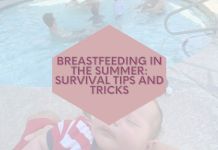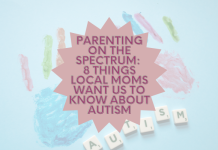Guest Post By: Katie Wilton
Having my child in the hospital was undoubtedly the most vulnerable point of my entire life. Our daughter Colette was born 10 weeks premature due to my body suffering multiple chronic placental abruptions, resulting in IUGR and then entering into preterm labor.
I was in and out of the hospital seven times in eight weeks, culminating in a 6-day antepartum stay before Colette made her early arrival via emergency C-section.
Colette’s stay in the NICU lasted a full nine weeks, resulting in her homecoming one week shy of her scheduled due date.
63 days in the NICU is grueling. Some family members and some friends showed up for us more than others, but in that vulnerable of a state, every bit of effort to be present for us was appreciated. These are the ways that we felt supported, and are ways I’d encourage anyone reading this to show up for their loved ones during a hospital stay, too.
XO,
Katie
Outreach
Just hearing from people made us feel seen and loved.
Being in the hospital with your child is an incredibly isolating experience. We found that some people that we expected to show up for us didn’t, because they were concerned that they wouldn’t say the right things, or wouldn’t know how to appropriately empathize.
Simple texts like “I am thinking about you! How are you doing today?” meant as much to us as some of the more opulent gestures we received.
Those that picked up the phone and left messages week after week, knowing that I likely wouldn’t return the calls, but wanted to be present for me anyway, were so important.
If you are worried that you are bothering the parent who is in the hospital with their child–don’t. Don’t always expect a response, but do pick up the phone or send that text. And then days or a week later, pick up the phone again, even if the first, second, third attempts were unanswered.
Acts of Service
My full-time job became sitting at Colette’s bedside from 8am to 8pm, sometimes arriving even earlier and leaving later than that.
By the time I got home, I was too exhausted to do laundry, clean our home, cook myself a balanced meal, or get life in order.
Those that wedged their way in, didn’t ask, and just said “I’m coming over to do X for you tomorrow” picked up pieces for me and helped temper anxiety about the other half of my life falling apart while the motherhood part was in pieces at the hospital.
Some mothers will not leave the bedside at all–which really leaves the home in shambles. Mundane chores and tasks of everyday life: mowing the lawn, picking up clothes from the dry cleaners, changing the bedsheets, unloading the dishwasher–all small tasks but felt huge to us when people insisted on supporting us in this way.
If you feel close enough with the family to do so, step up and help close those gaps so things don’t fully fall through the cracks for them at home.
Gifting
Freezer meals were a wonderful help. We had lots of premade freezer dinners brought over by friends who left instructions on how to reheat, which kept me nourished as I was trying to keep my milk supply up. Here’s a full guide on tips and tricks for brining meals to new parents.
Gift cards to Postmates, Grubhub, Uber Eats, etc, were equally as helpful to be able to order something to eat to be delivered directly to the hospital, or to order a late dinner as I was leaving the hospital that would arrive as I was pulling into the driveway.
Other gifting ideas that were particularly special (for a NICU mom!) were preemie outfits that could navigate all of her wires (buttons, or zippered footies with a two-way zipper), or cute things to decorate her pod, like photos of the family and our dog so we could have a pseudo-nesting experience in the NICU.
Lastly, gifts that personally benefited me–spa gift cards, shopping gift cards, a plush robe, or other things to make *me* feel seen and pampered were really special.
As we know, so much of a pediatric hospital experience is about the child–as it should be–but I firmly stand by that the experience is the hardest on the parents, especially the mother. Don’t forget about Mama 🙂
Visiting with friends, or solo Mom time
Colette being in the hospital for 63 days required me to find a few moments for myself.
The Mom Guilt was especially heavy on the days I went to get my nails done, or slept in, or took an hour to talk to my therapist, but these decisions recharged me.
And what lifted me up even more was the girlfriends who came to visit me for a quick cup of coffee in the cafe, or came to visit Colette in her isolette.
Putting it out there that you’re always available to grab a cup of coffee or jump on FaceTime if your friend whose child is in the hospital needs a brief outlet to break the monotony of being in the hospital room.
1:1 Counseling or Support/Therapy Groups
Life doesn’t always go as planned. Personally, I’d say life has rarely looked as I’ve ever expected it to.
And generally that’s been a good thing–my story is one that I am deeply proud of, regardless of the trials and the triumphs.
But there is a lot of grief that occurs when expectations are not met–no matter how large or how small those expectations were.
Having a child in the hospital for an extended stay, regardless of length, is not something that any parent imagines happening, and therefore grief, and even trauma, comes with the experience.
Having the professional support I needed to provide tools to help me cope, to enable me to be the best mother possible at a time where everything felt so impossible, was e.v.e.r.y.t.h.i.n.g.
I say it all of the time: Women’s Health Innovations of Arizona (WHI) brought me back to life after the soul-crushing experience of my complicated pregnancy and equally complicated postpartum experience.
WHI is the only Maternal Mental Health organization in the state of Arizona that is licensed by Postpartum Support International. Are there other mental health providers out there? Sure, yes, of course.
But no organization has quite the roster of those certified in perinatal mental health support or can meet the needs of mothers (and fathers, too!) going through a challenging season of life quite like the counselors at Women’s Health Innovations.
There are a variety of support groups and resources for parents to meet other parents in a similar stage of life, or 1:1 counselors to help personalize your support needs. Regardless of where you are at in pregnancy, postpartum, or parenthood, if you’ve considered looking for maternal mental health support, I highly encourage you to reach out to WHI.










